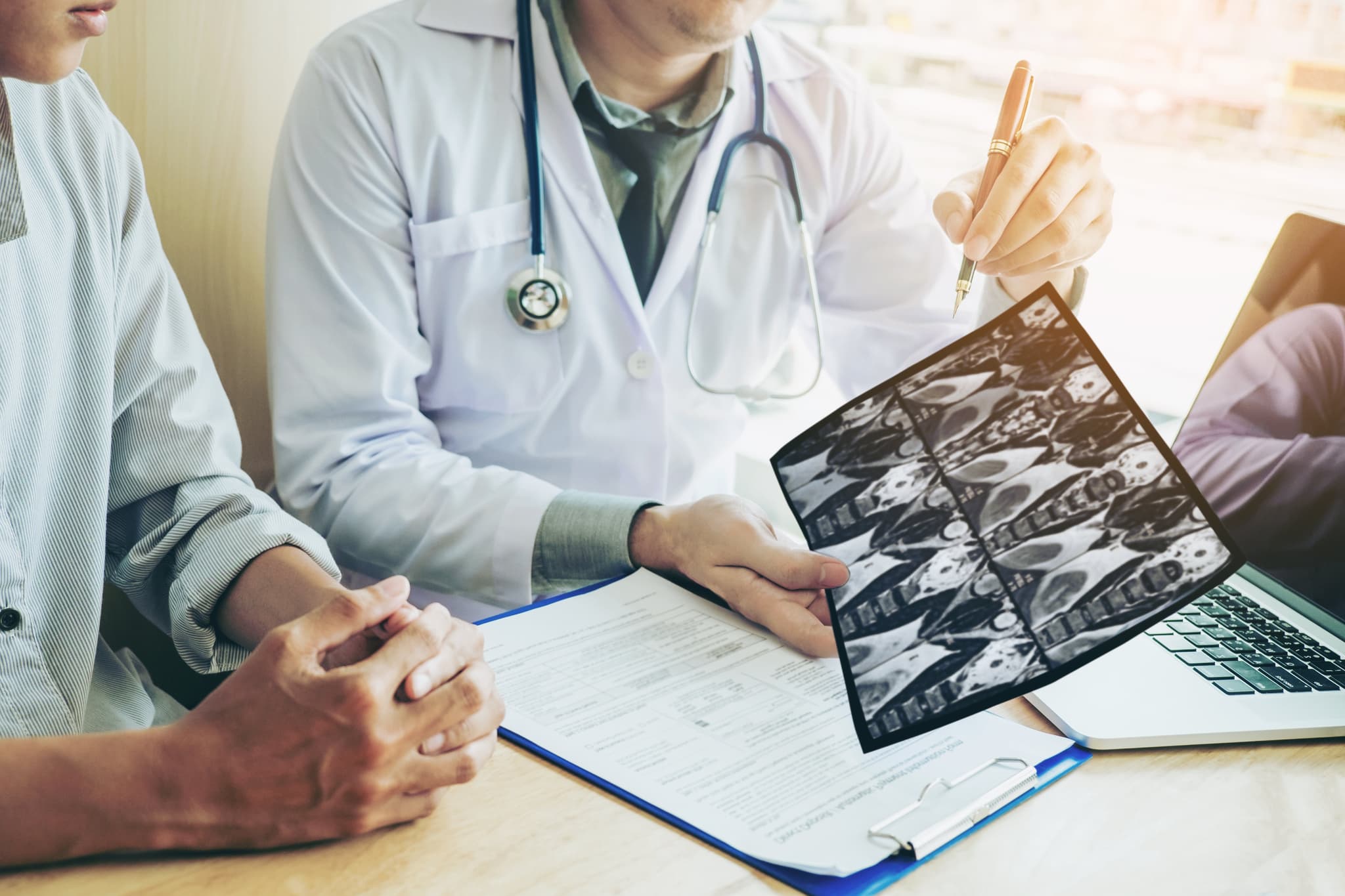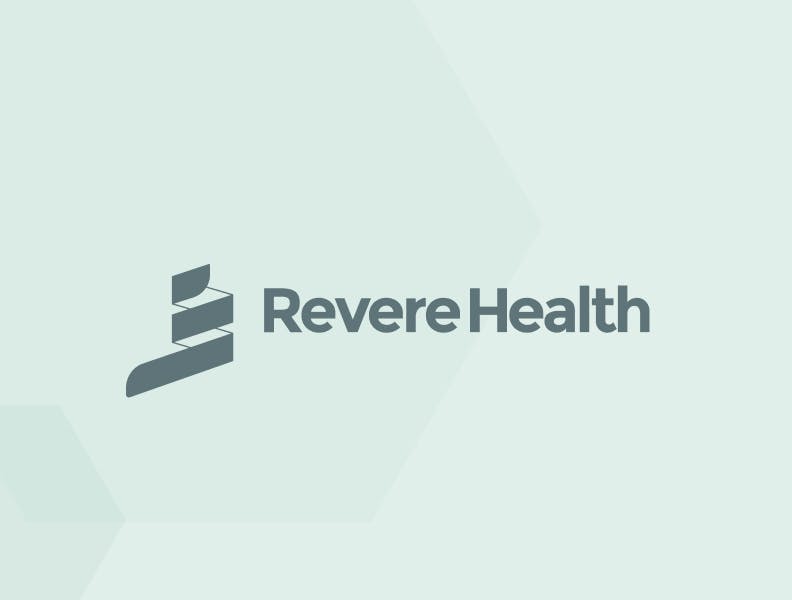
2019-10-15T16:28:57
What is the Difference Between Diagnostic, Therapeutic and Interventional Radiology?
- Imaging
- Radiation Oncology
- Radiology
June 6, 2019 | Radiology
Specialties:Radiology

A DEXA scan (also called bone densitometry scan, dual-energy X-ray absorptiometry scan or a DXA scan) is a non-invasive imaging test used to measure bone loss. Similar to a traditional X-ray scan, a DEXA scan uses a specialized machine to emit enhanced X-ray beams into a patient’s body to produce a picture. It is commonly used to take pictures of the lumbar (lower) spine and hips, diagnose osteoporosis and identify a patient’s risk of developing osteoporotic fractures.
The scan works by bouncing X-rays off your body and measuring the number of rays that bounce back. The rays are absorbed differently by your body’s bone, fat and muscle. The picture that the X-rays create allows your doctor and radiologist to measure your bone density.
During a DEXA scan, you will lie down on an open X-ray table as still as possible. Depending on which part of the body the DEXA scan is measuring, your radiologist may have you lie in a specific position. The scan takes about 10 to 20 minutes and is completely painless. When the scan is over, you will be able to go home.
Following your DEXA scan, the radiologist will analyze the images and send a report to your primary care doctor who will discuss the results with you. The radiologist will rate your images based on two scoring guidelines.
Your primary care doctor can discuss further treatment with you if you are diagnosed with osteopenia or osteoporosis.
A variety of conditions can increase your risk of osteoporosis, but one of the most common risk factors is age. In fact, many people over the age of 50 people will experience bone density loss or be at risk of breaking a bone. According to the National Osteoporosis Foundation (NOF), “approximately one in two women and up to one in four men age 50 and older will break a bone due to osteoporosis.”
Because osteoporosis is so common in people over 50, the NOF recommends individuals who meet one or more of the following conditions should get a DEXA scan.
Individuals who have the following should also receive a DEXA scan to check for bone loss
While not at risk for osteoporosis like individuals aged 50 and up, children and young adults can still experience bone density loss. Talk to your primary care doctor if you have questions or concerns about you or a loved one.
Osteoporosis is a costly disease. According to the NOF, “Osteoporosis is responsible for two million broken bones and $19 billion in related costs every year.” If you or a loved one are at risk for osteoporosis, receiving a DEXA scan will allow your primary care physician to diagnose and treat the disease early. DEXA scans are also considered the best standardized method available to diagnose bone loss and an accurate estimator of fracture risk.
Like any X-ray scan, DEXA scans use a form of radiation to take pictures of the body. The dosing amount of radiation varies between scans but is very minimal. The benefits of an accurate diagnosis of osteoporosis far outweigh the risks of a DEXA scan. Talk to your doctor if you are pregnant or may become pregnant prior to your DEXA scan.
You should wear loose, comfortable clothing and avoid clothing that has zippers, belts or buttons made of metal. Objects such as keys or wallets should be removed. Jewelry, glasses, removable dental pieces and items made of metal should also be removed prior to the scan. Generally, you will be asked to not take calcium supplements 24 hours before your exam. Your primary care doctor and DEXA radiologist will give you more specific instructions.
Revere Health Imaging offers the most advanced imaging technology in Utah Valley with convenient locations and reduced-cost exams. We even offer our imaging services at night for your convenience. Contact us today at 801-812-4624 for an appointment!
WRITTEN BY:
The Live Better Team

2019-10-15T16:28:57

2017-12-26T11:52:27

2017-12-19T14:36:02

2017-12-12T15:42:04
This information is not intended to replace the advice of a medical professional. You should always consult your doctor before making decisions about your health.